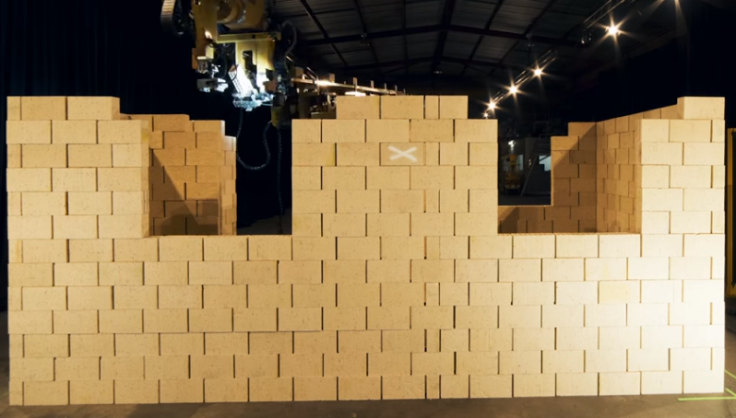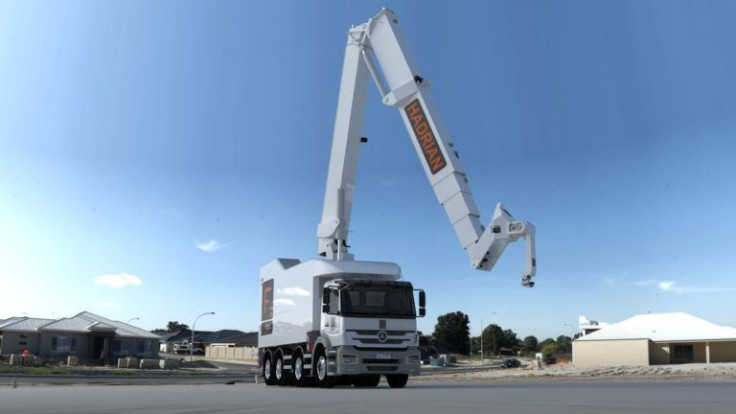Australian bricklaying robot builds house in 2 days

Advances in artificial intelligence (AI) has allowed robot experts to develop robots that could function as a massage therapist, pain inflictor, animal killer, nuclear plant cleaner and sex machine. In Australia, a company developed a bricklaying robot that could build a house in two days.
Fastbrick Robotics, a company based in Perth, says Hadrian, the bricklaying robot, could do the job of building houses – which normally takes a human bricklaying team four to six weeks – cheaper. Besides cutting the cost by about 10 percent, Hadrian builds a stronger and better insulated home.
Named after the Roman emperor who started in the year 122 to build a stone wall which stretched over 75 miles across Northern England, Hadrian 105 the robot could lay 225 bricks an hour. The same volume of bricks would take human workers half a day to do.
Despite Fastbrick’s description of the robot as a 3D automated robotic bricklaying technology, it is not the same as 3D printing technology since the bricks are already made. The process excludes extrusion or sintering of raw materials. Using a computer-aided design, Hadrian’s work falls under additive manufacturing since material is being deposited one layer at a time.
Developed by Mike Pivac, CEO of the company, and his cousin Mark Pivac, creator of Hadrian and chief technology officer, the two would be in the US next week to talk to potential partners on a marketing trip, reports Business Insider.
To help explain to partners how Hadrian works, the company released a video. The automated process begins with bricks fed onto a conveyor belt which travels along a long robotic arm or telescopic boom.
It is then gripped by a clawlike device which lays the bricks out methodically, directed by a laser guiding system. The structure should never be touched by human hands until the brick shell is finished and the other elements of the house need to be added.

The Pivacs are developing Hadrian X which would perform faster than Hadrian 105 at an amazing rate of 1,000 bricks an hour.
VIDEO: Fastbrick Robotics Time Lapse
Source: www.fbr.com.au





















